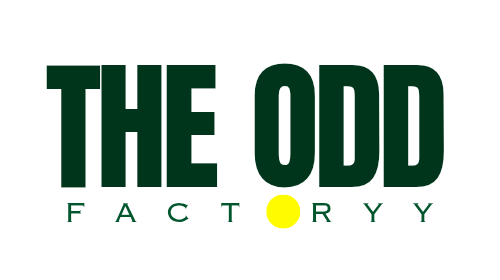The multi-billion dollar industry of clothing manufacturers in Kuwait production has an impact on the lives of millions of people worldwide. Fortunately, this industry\’s quick expansion has raised ethical issues, such as poor working conditions, low pay, and labour exploitation.
The significance of ethical and fair trade custom clothing manufacturers in Germany has recently become increasingly understood by customers, governments, and companies. This is so that social justice and human rights can be advanced and industry achievement and long-term sustainability can be increased through ethical and fair trade methods.
What is Fair Trade?
A social movement known as fair trade works to improve the economic conditions and support the sustainability of producers in developing nations. It aims to guarantee fair prices for the products produced by farmers and employees in these countries, good working conditions, and rights protection.
To help producers increase their capacity for production and marketing, fair trade organizations work closely with them. Additionally, they frequently give them access to credit and other financial services while paying them a fair price for their goods which is usually above the current market rate.
What Does Ethical Fashion Mean?
\”Fashion that tries to reduce the negative impact on people, animals, and the planet\” is the general definition of ethical fashion. Design, labour, and materials are used to make an ethically produced article of clothing. Ethical fashion is good for the environment and people at every stage of the fashion process, from seed to garment. Since every fabric has a different effect on the environment—from linen and cotton to polyester and denim—ethical fashion considers this when choosing Garments factory in saudi arabia
Ethical Fashion is Fair Trade
Fairtrade is only one aspect of ethical fashion. Since it guarantees that workers receive a fair wage for their job and are not neglected, fair trade is a crucial part of ethical fashion. But in addition to this, ethical fashion also considers issues like worker safety, animal welfare, and environmental sustainability.
Fashion companies must think about every aspect of the lifespan of their products, from the raw materials to the manufacturing procedures to the effects on society and the environment, to be ethical. This includes utilizing eco-friendly materials, limiting waste, cutting back on carbon emissions, and ensuring that employees work in a safe and healthy environment.
Despite being a crucial component of ethical fashion, more than fair trade is needed. The fashion business needs to become more sustainable and fair. Therefore, brands and customers must consider their clothing choices\’ broader social and environmental effects.
Why is Ethical Manufacturing Important?
The well-being of employees, clients, and the environment depends on ethical production. However, businesses can also gain a lot from it. Manufacturers are securing their future by adopting sustainable clothing supplier in Dubai methods and resources. Some toilet paper manufacturers, for instance, will plant new trees to replace those cut down during production. This is a cyclical action since it limits their environmental impact and ensures that they will have the materials to continue producing goods in the future.
Additionally, ethical companies that foster a pleasant workplace culture are more likely to see productivity increases. Ethical businesses can keep up with workforce and skill development, which will enhance their output. According to research from Oxford University, contented employees are 13% more productive than unhappy ones. Since 93 per cent of workers stated they would stay at a company longer if it invested in their careers, training staff could also aid in retention. The ethical impact of clothing manufacturers in Dubai companies can also affect their employees, rather than only the sustainability of the materials they use.
Importance of Ethical Manufacturing in the Textile Industry
Concerns about the textile sector are widespread. Environmental problems related to textile production vary from pesticide use to water contamination.
- Consider the usage of water. Have you heard of it?
- A cotton t-shirt requires around 2,700 gallons of water to produce!
- More than 6,800 gallons of water are needed to make just one pair of jeans!
- Additionally, water is used annually to dye cotton and synthetic clothes.
- Additionally, chlorine, formaldehyde, mercury, lead, and 1600 other toxic substances are needed for dyeing clothing. The global textile sector is responsible for 20% of the water contamination.
The environment is protected whenever a textile manufacturing facility uses ethical and sustainable clothing manufacturers in Kuwait methods. Understanding that the zero-waste strategy may be used in the textile business is urgently needed.
Ethical textile manufacture has other considerations besides environmental protection. Employees\’ mental, bodily, and financial health depends on labour rights, fostering community, and a healthy work environment.
Conclusion
Ethical and fair trade methods are essential in clothing manufacturing to limit the negative effects on the natural world and ensure the employees participating are treated with respect and dignity.
Additionally, these practices are crucial in ensuring that customers can make wise decisions regarding the items they buy and believe those products were produced ethically and sustainably. Ultimately, The Odd Factory ethical and fair trade methods benefit everyone engaged in clothes production, from the workers to the customers. They contribute to developing a more just and equitable international economic system.



